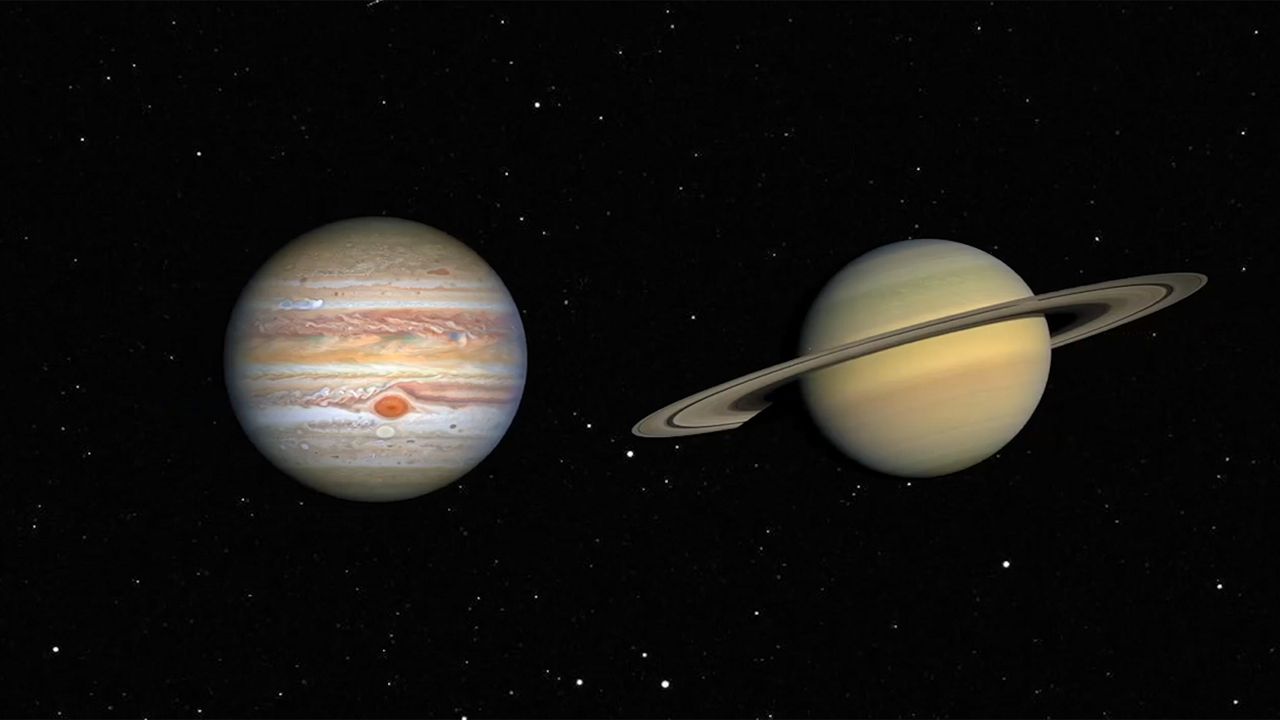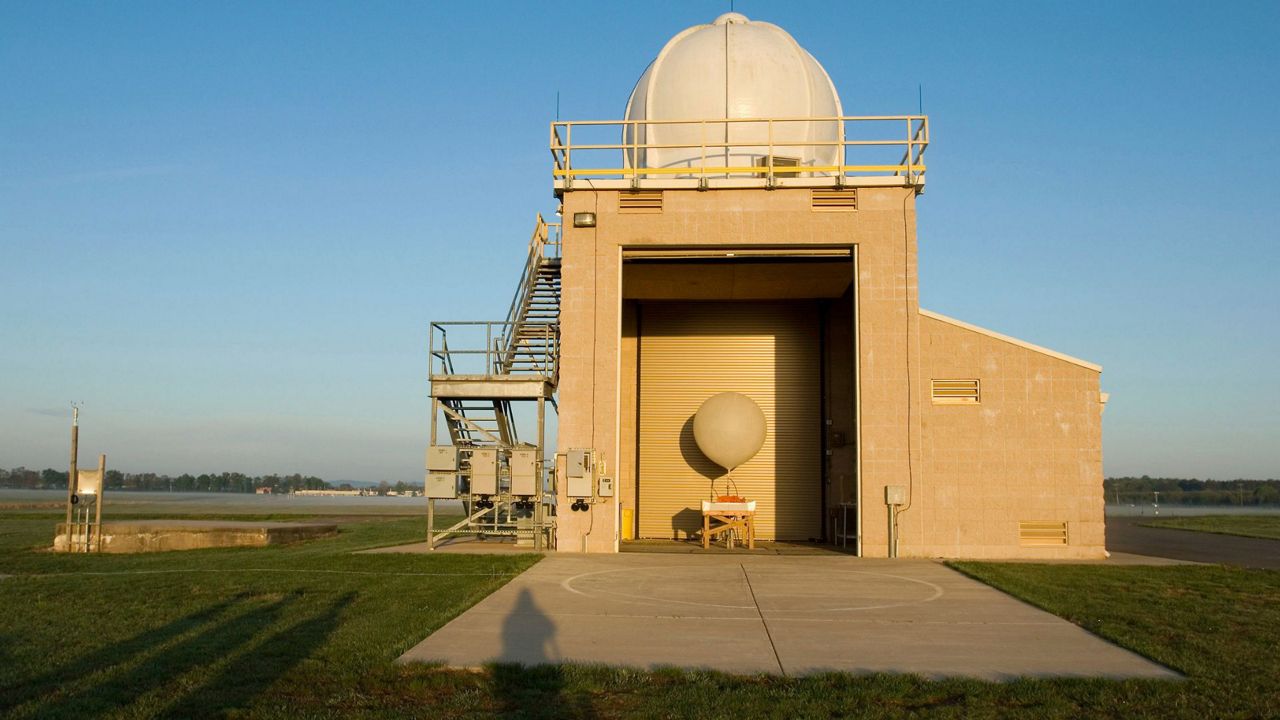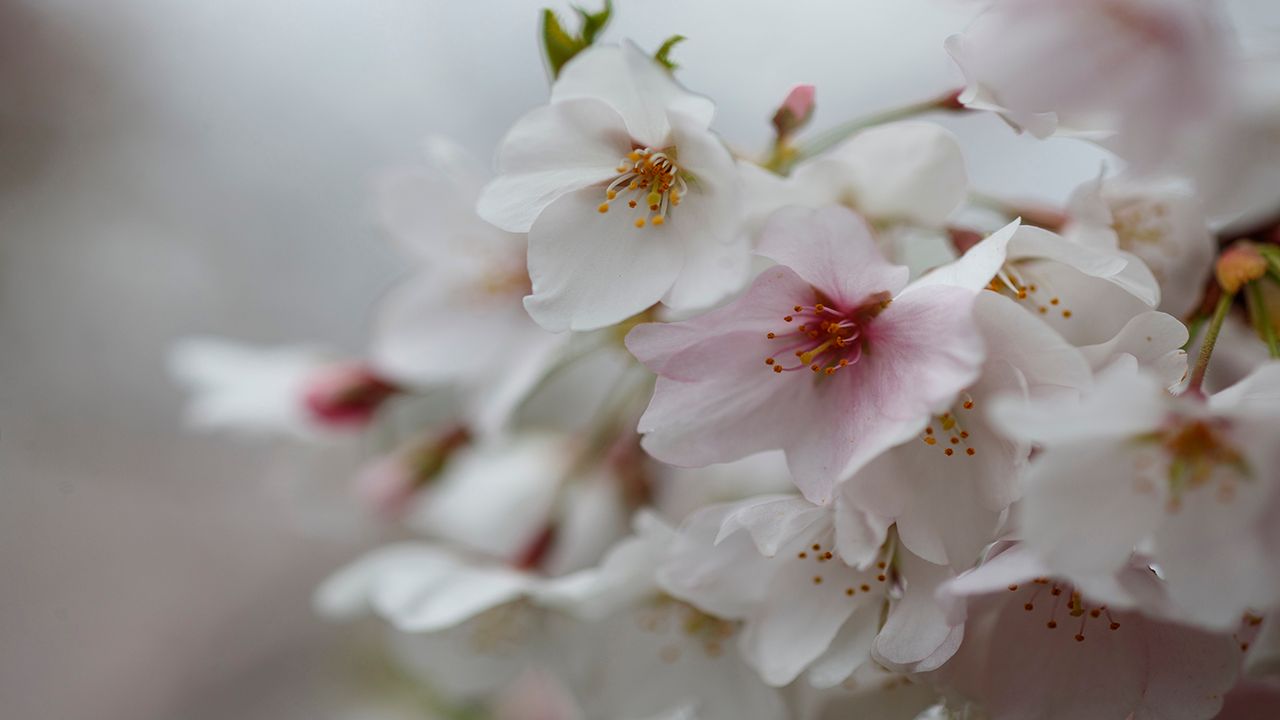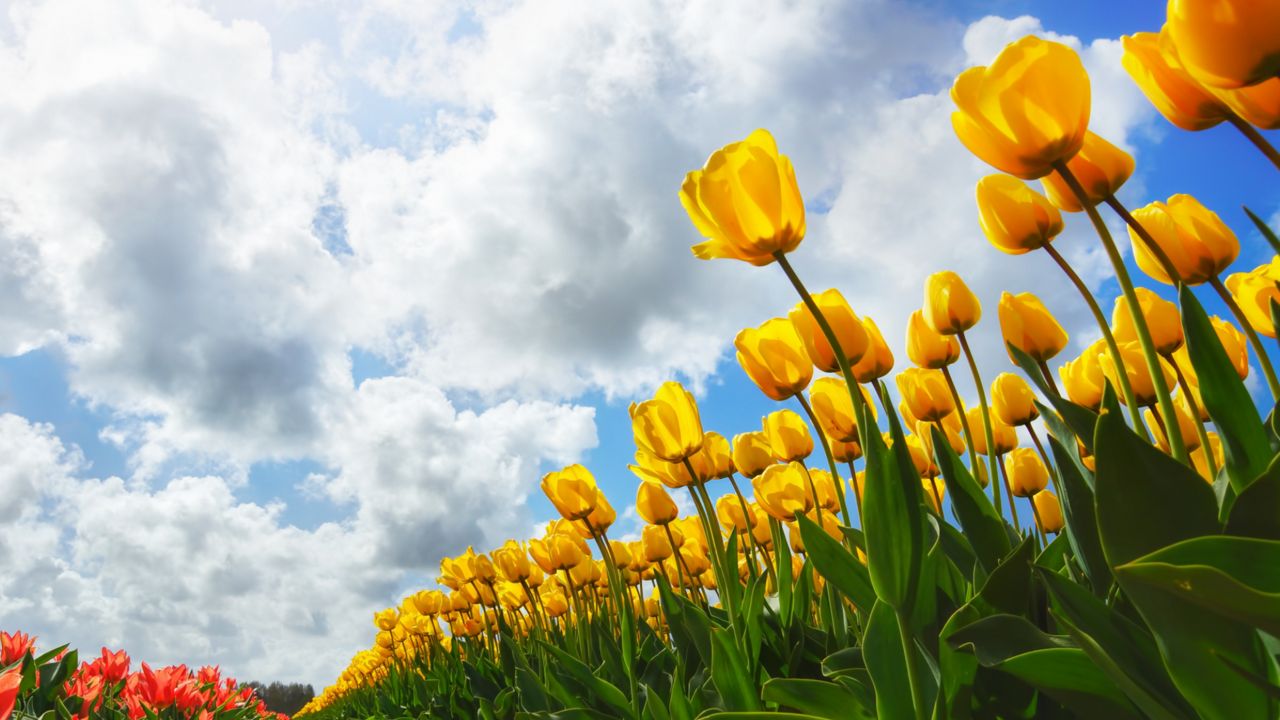FEED FROM GRIFFITH OBSERVATORY IN LA
An amazing show will occur hundreds of millions of miles above our heads Monday. Jupiter and Saturn will be so close they will appear to form a double planet.
Known as The Great Conjunction, Jupiter and Saturn will align, as they do once every 20 years.
However, not every Great Conjunction is equal.
This year’s alignment is rare because the two planets will seem to overlap each other from Earth’s point of view. In reality, the planets will still be about 450 million miles away from each other.
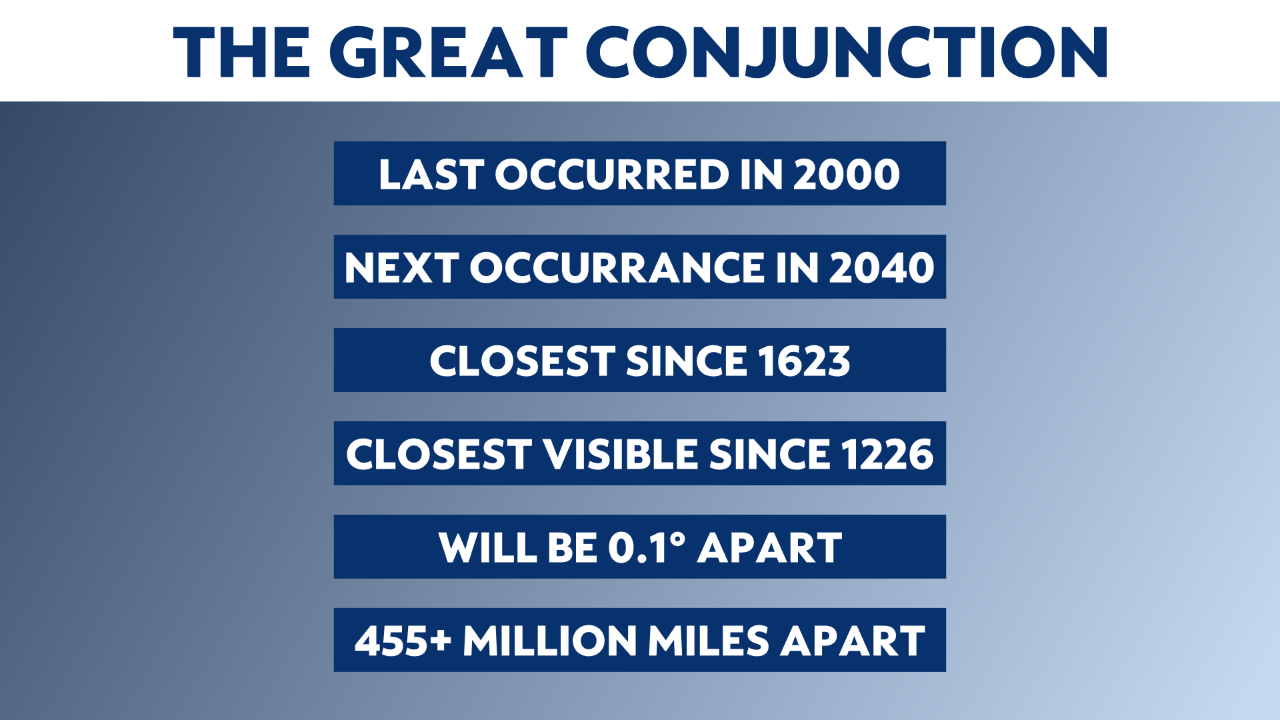
The last time the two planets were this close to each other, from Earth’s point of view, was back in 1623.
However, that Great Conjunction occurred near sunset, and the Sun’s glare made it impossible to see. The last observable time these planets were this close was in 1226, nearly 800 years ago.
If skies are clear from your viewing location, this event will be easy to view. The two planets have been visible all month long.
Peak viewing will be this coming Monday, December 21st. This Monday happens to be the winter solstice here in the northern hemisphere.
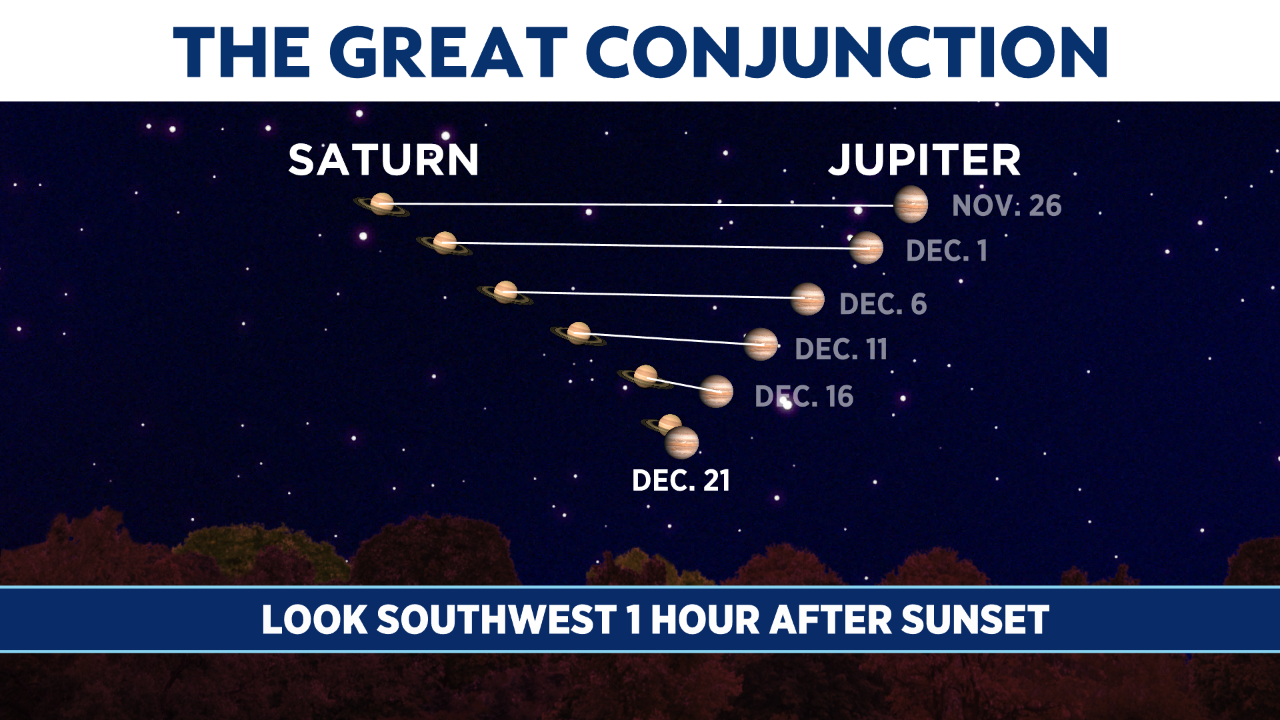
After sunset, look southwest in the night sky to see Jupiter, which will be brighter than any star in the sky. Saturn will be just east of Jupiter. It will be slightly dimmer but still just as bright as the brightest star, with a golden glow.
Remember, the way to tell the difference between a planet and a star in the night sky is consistency. Unlike stars, which twinkle, planets will hold consistent brightness.
You may have seen other articles on this event calling it The Christmas Star. That may be more click-bait than actual truth.
One could argue the Bible states the Wise Men used the Star of Bethlehem to guide them to the birth of Jesus Christ. The three arrived at Bethlehem on the Epiphany, which is around January 6th.
This timing lines up more with the Jupiter and Venus conjunction, which is very bright. Venus is the second brightest object other than the Moon in the night sky. So, this scenario would now be the Jupiter-Saturn conjunction.
Other arguments have claimed the three Wise Men saw a comet or supernova the night they visited Christ’s birthplace.




